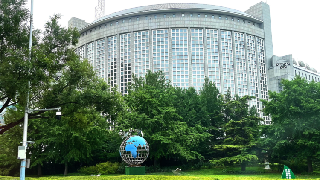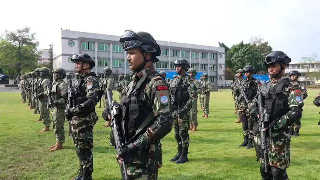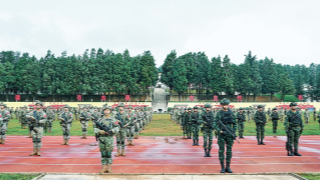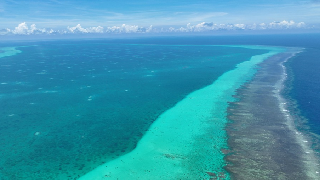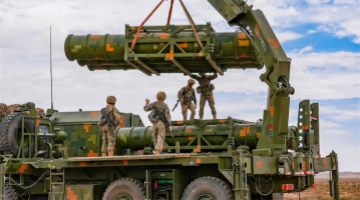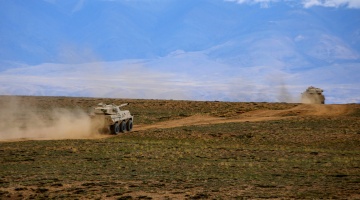
Flames and smoke rise from an exploded ammunition storage hit by an Israeli air strike in Dahiyeh, Beirut, Lebanon, October 6, 2024. /CFP
Massive consecutive strikes hit Beirut's southern suburbs from late Saturday into Sunday, a day ahead of the anniversary of Hamas' attack on southern Israel on October 7 last year.
The strikes came after days of bombing by Israel of Beirut suburbs considered strongholds for Hezbollah, killing its leader Sayyed Hassan Nasrallah, and possibly his potential successor.
A Lebanese security source said on Saturday that Hashem Safieddine, the potential successor, had been out of contact since Friday after an Israeli airstrike near the city's international airport that was reported to have targeted him.
Hezbollah has made no comment so far on Safieddine.
His loss would be another blow to the group and its patron, Iran. Israeli strikes across the region in the past year, sharply accelerated in the past few weeks, have decimated Hezbollah's leadership.
Israel has been expanding its actions in Lebanon. On Saturday, it made its first strike in the northern city of Tripoli, a Lebanese security official said, and Israeli troops launched raids in the south.
Before the recent upsurge, the exchange of fire between Israel and Hezbollah had been mostly limited to the Israel-Lebanon border area, in parallel to Israel's year-old conflict in Gaza against Hamas.
The Israeli assault has also killed hundreds of ordinary Lebanese, Lebanese officials say, and forced 1.2 million people, almost a quarter of the population, from their homes.

Men carry baggage through the crater from an Israeli air strike as they make their way across the border from Lebanon into Syria in Masnaa, Lebanon, October 5, 2024. /CFP
UN High Commissioner for Refugee Filippo Grandi arrived in Lebanon on Saturday on a "solidarity" visit for the hundreds of thousands of Lebanese affected by Israeli bombardment and needing international support.
Grandi said on social network X that "Lebanon faces a terrible crisis" as "hundreds of thousands of people are left destitute or displaced by Israeli air strikes."
"I have come here in solidarity with those affected, to support the humanitarian effort and to ask for more international help," Grandi said.
On the same day, Egypt sent 22 tonnes of humanitarian aid to Lebanon, the Egyptian foreign ministry said.
Meanwhile, Iranian Foreign Minister Seyyed Abbas Araghchi said in Damascus that Iran supports a ceasefire in Gaza and Lebanon and warned Israel that it would respond proportionately to any attacks and, if necessary, with greater force.
In a press conference wrapping up his one-day visit to Syria, Araghchi reaffirmed Iran's commitment to standing by the "resistance" against Israel, noting that the country will continue its aid and coordination with Syria to support displaced Lebanese refugees.
"There are two urgent issues on our agenda: addressing the needs of Lebanese refugees and securing a ceasefire in Gaza and Lebanon," Araghchi said. He added that Iran has already sent humanitarian aid to Syria to help the Lebanese refugees in Syria, with more expected to arrive soon.
On the possibility of an Israeli attack on Iran, Araghchi warned, "Our response to any Israeli strike will be proportional and even stronger if necessary. We have demonstrated this in the past, and they are welcome to test our resolve again."
UN Secretary-General Antonio Guterres called for an immediate end to the "shocking violence and bloodshed" in Gaza and Lebanon in a statement on Saturday.
"Since October 7, a wave of shocking violence and bloodshed has erupted," said Guterres.
"It is time for the release of the hostages," he said. "Time to silence the guns. Time to stop the suffering that has engulfed the region. Time for peace, international law and justice."


